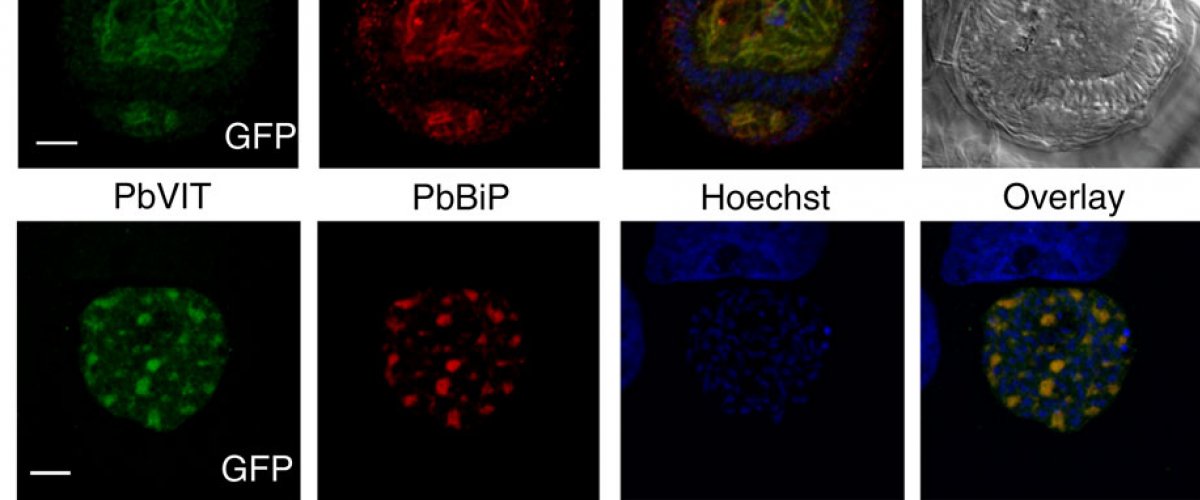Publication / A vacuolar iron-transporter homologue acts as a detoxifier in Plasmodium
Iron is an essential micronutrient but is also highly toxic. In yeast and plant cells, a key detoxifying mechanism involves iron sequestration into intracellular storage compartments, mediated by members of the vacuolar iron-transporter (VIT) family of proteins. Here we study the VIT homologue from the malaria parasites Plasmodium falciparum (PfVIT) and Plasmodium berghei (PbVIT). PfVIT-mediated iron transport in a yeast heterologous expression system is saturable (Km∼14.7 μM), and selective for Fe(2+) over other divalent cations. PbVIT-deficient P. berghei lines (Pbvit(-)) show a reduction in parasite load in both liver and blood stages of infection in mice. Moreover, Pbvit(-) parasites have higher levels of labile iron in blood stages and are more sensitive to increased iron levels in liver stages, when compared with wild-type parasites. Our data are consistent with Plasmodium VITs playing a major role in iron detoxification and, thus, normal development of malaria parasites in their mammalian host.
Reference
A vacuolar iron-transporter homologue acts as a detoxifier in Plasmodium
Ksenija Slavic, Sanjeev Krishna, Aparajita Lahree, Guillaume Bouyer, Kirsten K. Hanson, Iset Vera, Jon K. Pittman, Henry M. Staines & Maria M. Mota
Nature Communications 7, Article number: 10403 ; doi:10.1038/ncomms10403








